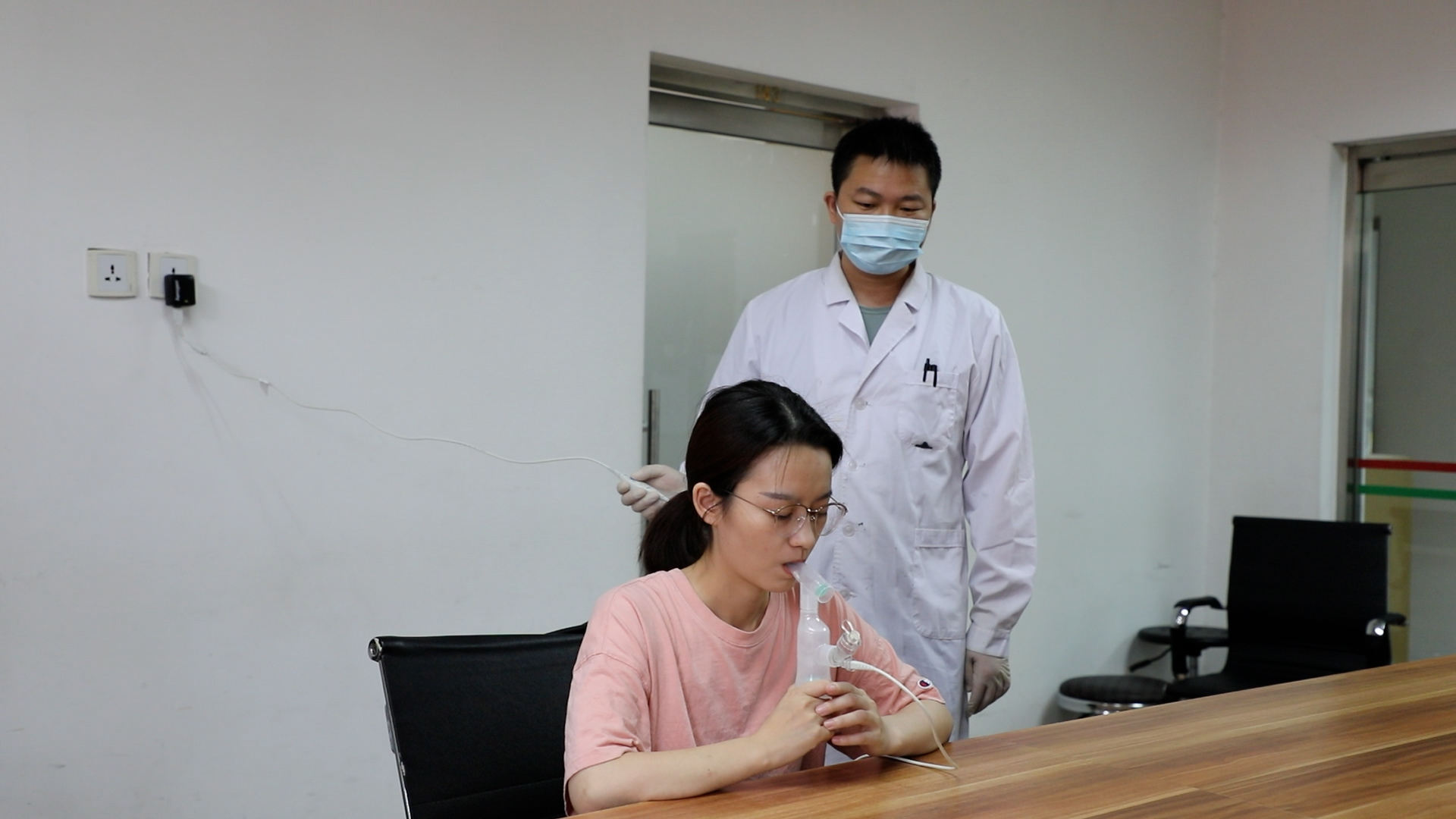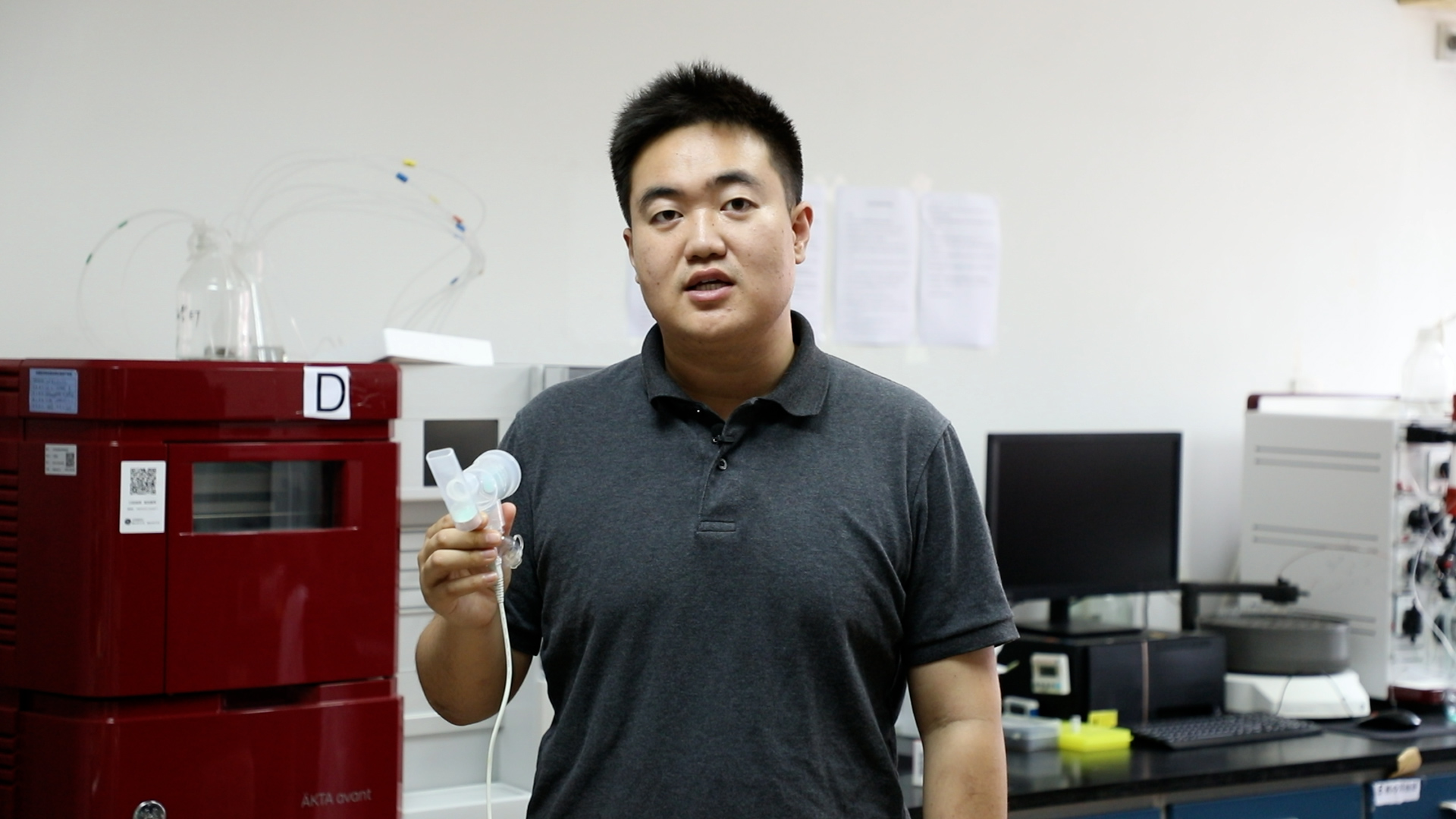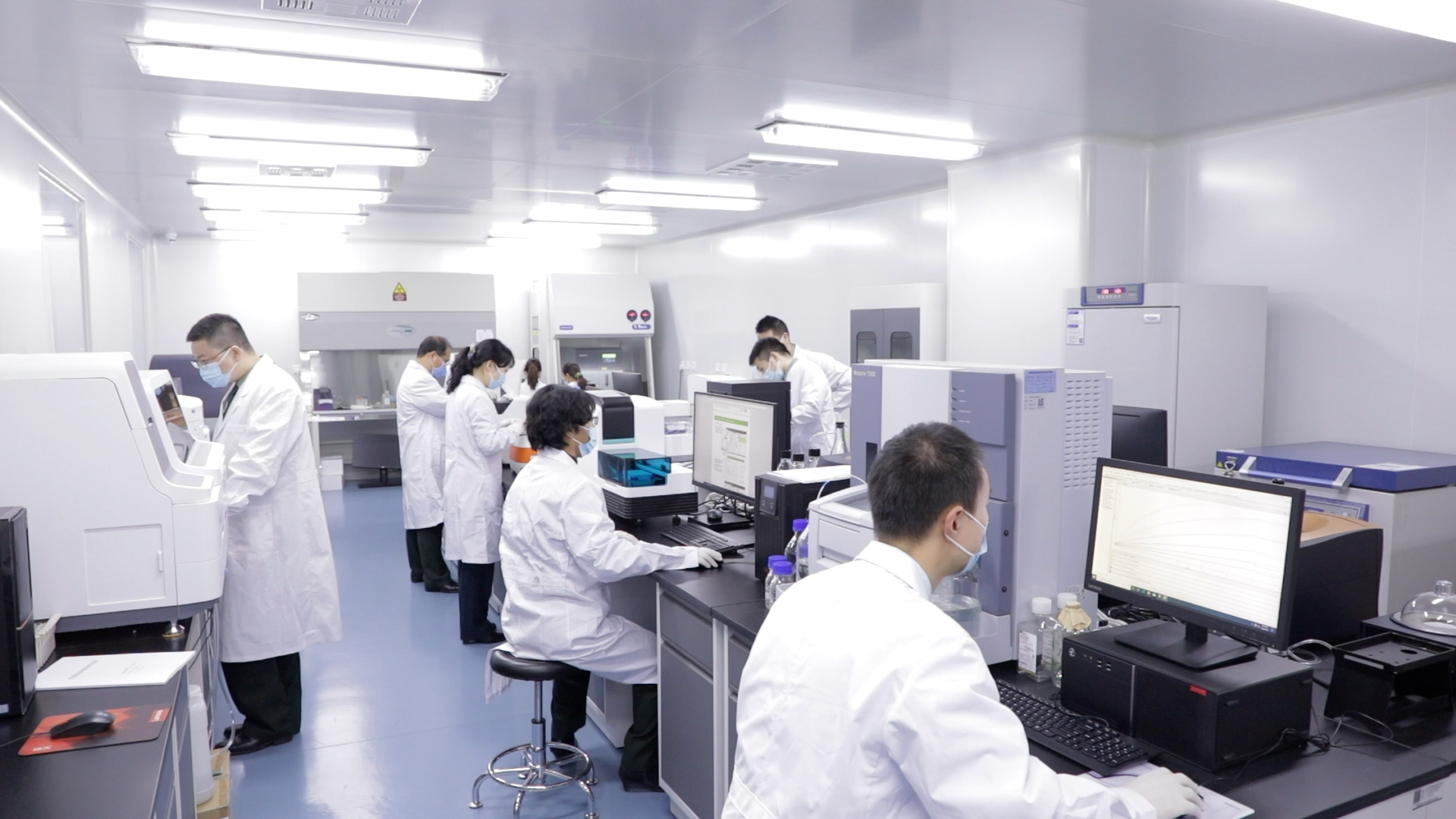
Trying a COVID-19 vaccine inhaler. /CMG
Trying a COVID-19 vaccine inhaler. /CMG
COVID-19 vaccines may soon come in the form of inhalers, which would achieve similar results as jabs without producing "serious side effects," according to a new research paper published in The Lancet Infectious Diseases journal on July 26.
The vaccine, named "Ad5-nCoV," can also act as a booster for already-vaccinated people, the paper said.
"Aerosolized Ad5-nCoV is well tolerated," read the paper. "Two doses of aerosolized Ad5-nCoV elicited neutralizing antibody responses, similar to one dose of intramuscular injection."
The paper was published after the vaccine developers concluded the Phase-I clinical trial involving 130 adults in Wuhan, China, in late September 2020.
The publication of the trial results is a world-first, China Media Group (CMG) reported.

A CMG reporter introduces the COVID-19 vaccine inhaler. /CMG
A CMG reporter introduces the COVID-19 vaccine inhaler. /CMG
'More attractive'
According to CMG, the inhalers are cost effective because they take only one-fifth of the materials to make the injected vaccines, and they can achieve the same immunity compared to jabs.
"The vaccine stays the same. The only difference is the way to take it in," CMG said in a report published on Wednesday.
Professor Hou Lihua, a member of the research team behind the inhalers, told CMG that the inhalers are promising for three reasons.

Researchers at the Academy of Military Medical Sciences work on the COVID-19 vaccine inhaler. /CMG
Researchers at the Academy of Military Medical Sciences work on the COVID-19 vaccine inhaler. /CMG
The first is attractiveness. The inhalers are more attractive to people because no injections mean no pain.
The second is the cost-effectiveness to produce many more doses with the same source materials.
"And the last is that inhalers produce less medical waste compared to jabs," Hou said. "No more needles to deal with."
The trial was funded by the National Key Research and Development Program of China and National Science and Technology Major Project, with Dr Chen Wei from the Beijing Institute of Biotechnology, Academy of Military Medical Sciences, leading the research team.

